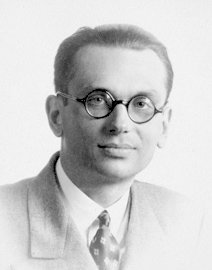A Quote by John L. Casti
System theorists know that it's easy to couple simple-to-understand systems into a "super system" that's capable of displaying behavioral modes that cannot be seen in any of its constituent parts. This is the process called "emergence."
Related Quotes
We are, first of all, not solitary creatures and second of all, we are deeply embedded in the lives of others. It's very easy to forget that and to engage in an atomistic fallacy - where we think that all we have to do is study the individual components of a system in order to understand the system. That's clearly not the case when it comes to social systems.
General Systems Theory, a related modern concept [to holism], says that each variable in any system interacts with the other variables so thoroughly that cause and effect cannot be separated. A simple variable can be both cause and effect. Reality will not be still. And it cannot be taken apart! You cannot understand a cell, a rat, a brain structure, a family, a culture if you isolate it from its context. Relationship is everything.
A lot of the so-called systems composers have this thing that the system is always right. You don't fiddle with it at all. Well, I don't think that. I think the system is as right as you judge it to be. If for some reason you don't like a bit of it you must trust your intuition on that. I don't take a doctrinaire approach to systems.
We have power... Our power isn’t in a political system, or a religious system, or in an economic system, or in a military system; these are authoritarian systems... they have power... but it’s not reality. The power of our intelligence, individually or collectively IS the power; this is the power that any industrial ruling class truly fears: clear coherent human beings.
I think the Scandinavian health systems are better when it comes to preventative care than the German system, because in the Scandinavian systems, the government is really more active in defining treatment, goals and defining health priorities. The German system is a competitive system with little government intervention. The price for this is that the government cannot set a health agenda. And the Scandinavian systems have little competition, so you often do have waiting lists. But on the other hand, you then have the government which can push for prevention.
The whole intelectual culture has a filtering system, starts as a child in school. You're expected to accept certain beliefs, styles, behavioral patterns and so on. If you don't accept them, you are called maybe a behavioral problem, or something, and you're weeded out. Something like that goes on all the way through universities and graduate schools. There is an implicit system of filtering, which has the, it creates a strong tendency to impose conformism. Now, it's a tendency, so you do have exceptions, and sometimes the exceptions are quite striking.
With more than half of the American workforce without private pension coverage, Social Security provides economic certainty within a system that is fair, equitable, and easy to understand. You work hard, pay into the system, and the federal government makes a promise to pay back your earned benefits when you retire. It's that simple.
We will soon be living in an era in which we cannot guarantee survivability of any single point. However, we can still design systems in which system destruction requires the enemy to pay the price of destroying n of n stations. If n is made sufficiently large, it can be shown that highly survivable system structures can be built.
Our society tends to regard as a sickness any mode of thought or behavior that is inconvenient for the system and this is plausible because when an individual doesn't fit into the system it causes pain to the individual as well as problems for the system. Thus the manipulation of an individual to adjust him to the system is seen as a cure for a sickness and therefore as good.


































